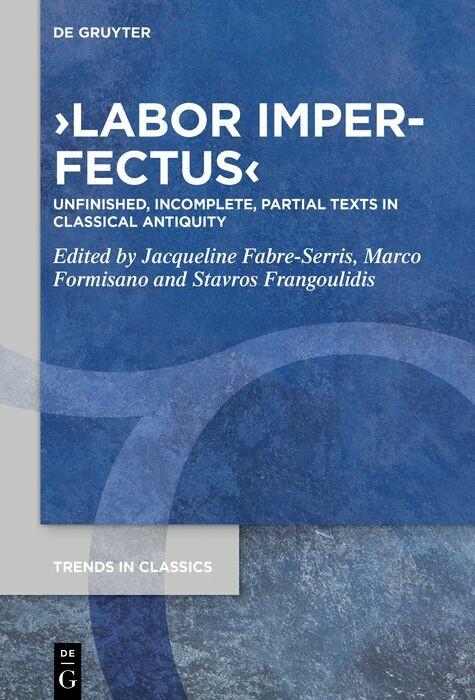
Sofort lieferbar (Download)
Unfinishedness and incompleteness are a central feature of ancient Greek and Roman literature that has often been taken for granted but not deeply examined; many texts have been transmitted to us incomplete. How and to what extent has this feature of many texts influenced their aesthetic perception and interpretation, and how does it still influence them today? Also, how do various editorial arrangements of fragmentary texts influence the reconstruction of closure? These important questions offer the opportunity to bring together specialists working on Greek and Roman texts across various genres: epic, tragedy, poetry, mythographic texts, rhetorical texts, philosophical treatises, and the novel. Reading a text by focusing on its current unfinishedness or incompleteness, or the textual signs suggesting an unfinished or incomplete state, the contributors examine the relations between author, reader and text as underscored by the verbal, generic and aesthetic features of each work. This edited volume brings together a broad spectrum of approaches to ancient and modern texts and aims to reach out to a broad scholarly community consisting not only of Classicists but also scholars of other literature and aesthetics.
J. Fabre-Serris, Univ. of Lille, France; M. Formisano, Ghent Univ., Belgium; S. Frangoulidis, Aristotle Univ. of Thessaloniki, Greece.
Mehr aus dieser Reihe
Produktdetails
Erscheinungsdatum
06. November 2023
Sprache
englisch
Seitenanzahl
443
Dateigröße
9,64 MB
Reihe
Trends in Classics - Supplementary Volumes, 157
Herausgegeben von
Jacqueline Fabre-Serris, Marco Formisano, Stavros Frangoulidis
Verlag/Hersteller
Kopierschutz
mit Wasserzeichen versehen
Family Sharing
Ja
Produktart
EBOOK
Dateiformat
PDF
ISBN
9783111340944
Entdecken Sie mehr
Bewertungen
0 Bewertungen
Es wurden noch keine Bewertungen abgegeben. Schreiben Sie die erste Bewertung zu "Labor Imperfectus" und helfen Sie damit anderen bei der Kaufentscheidung.

































